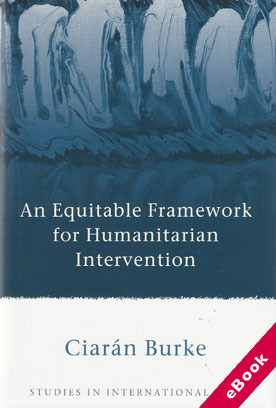
The device(s) you use to access the eBook content must be authorized with an Adobe ID before you download the product otherwise it will fail to register correctly.
For further information see https://www.wildy.com/ebook-formats
Once the order is confirmed an automated e-mail will be sent to you to allow you to download the eBook.
All eBooks are supplied firm sale and cannot be returned. If you believe there is a fault with your eBook then contact us on ebooks@wildy.com and we will help in resolving the issue. This does not affect your statutory rights.
This book aims at the resolution of the dilemma regarding whether armed intervention as a response to gross human rights violations is ever legally justified without Security Council authorisation.
Thus far, international lawyers have been caught between giving a negative answer on the basis of the UN Charter's rules ('positivists'), and a 'turn to ethics', declaring intervention legitimate on moral grounds, while eschewing legal analysis ('moralists'). In this volume, a third solution is proposed.
The idea is presented that many equitable principles may qualify as 'general principles of law recognised by civilised nations' - one of the three principal sources of international law (though a category that is often overlooked) - a conclusion based upon detailed research of both national legal systems and international law.
These principles, having normative force in international law, are then used to craft an equitable framework for humanitarian intervention. It is argued that the dynamics of their operation allow them to interact with the Charter and customary law in order to fill gaps in the existing legal structure and soften the rigours of strict law in certain circumstances. It is posited that many of the moralists' arguments are justified, albeit based upon firm legal principles rather than ethical theory.
The equitable framework proposed is designed to provide an answer to the question of how humanitarian intervention may be integrated into the legal realm. Certainly, this will not mean an end to controversies regarding concrete cases of humanitarian intervention. However, it will enable the framing of such controversies in legal terms, rather than as a choice between the law and morality.